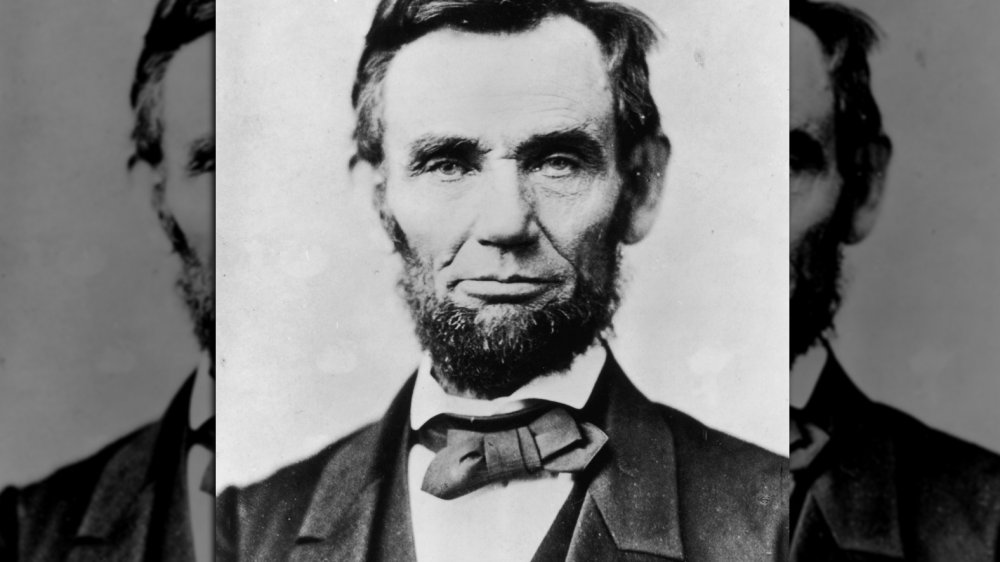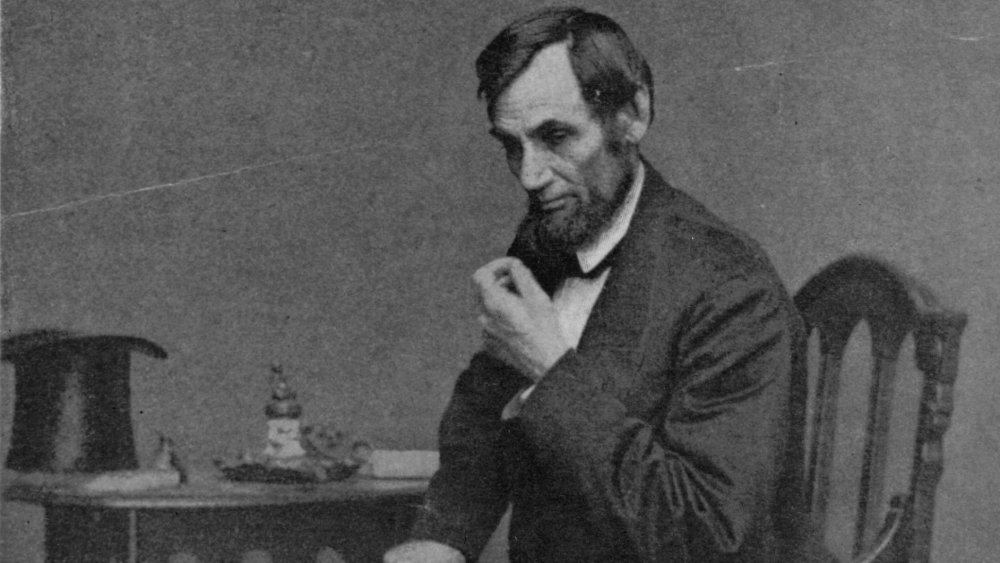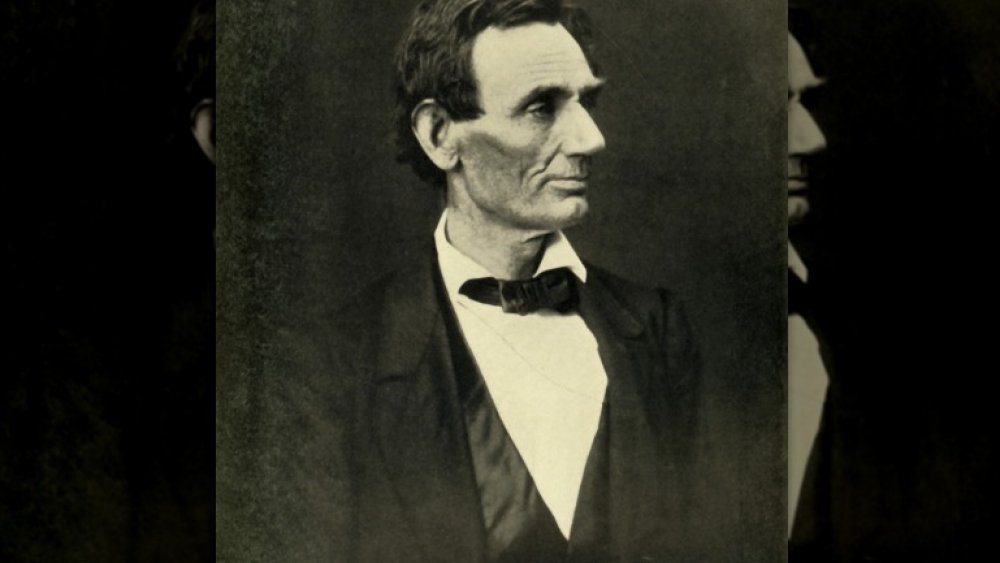Inside Abraham Lincoln's Time In The Military
There are a few facts that anybody with a fundamental middle school education in U.S. history knows about Abraham Lincoln. He gave the Gettysburg Address. He was president during the Civil War and emancipated the slaves. Lincoln was the 16th president of the United States, after serving a term in Congress. But did you know that Lincoln was a military man? Lincoln, in his younger years, was renowned for his physical capabilities. At 6'4" he was effectively a giant for his times. He felled trees, split rails, and drove railroad spikes. As ThoughtCo reports, he was also quite the wrestler. You wouldn't have wanted to fight this guy in close combat. But that doesn't mean he was the best soldier.
Lincoln was only 23 years old when he served in the Illinois state militia. At the time, the colonizing United States government was having trouble with the not-wanting-to-be-genocided Sauk, Fox, and Kickapoo tribes, under the leadership of Black Hawk, for whom the Black Hawk War is named. Lincoln never saw combat during his three tours of duty, but he did see a fair share of conflict within the militia in which he served.
The future president was elected to command his company of soldiers. He was pretty proud of that, according to Abraham Lincoln: A Life – the appointment was "a success that gave me more pleasure than any I have had since."
Lincoln made his own blunders
Which is kind of crazy, since he wasn't enthusiastic about the whole thing before it happened. Lincoln had to be pulled out by his friends who subsequently lined up behind him to show support. His company didn't exactly follow his commands. His first orders as captain were met with cries of "Go to the devil, sir!" by his men.
During his command, Lincoln was often punished for the actions of his men as well as his own blunders. He also got away with a few, too. For instance, he wasn't keen on military lingo and couldn't remember how to command his men to march to a certain location, so he dismissed them and ordered them to reconvene there instead. Another time, according to Abraham Lincoln: A Life, he was forced to carry a wooden sword in place of his real saber because his men stole a bunch of liquor and got tanked. Yet another time, Library of Congress records tell us, he was stripped of his sword for firing his pistol too close to camp.
The contention between Lincoln and his men wasn't always a bad thing. On occasion, it was proof of the more noble parts of Lincoln's character. At one point, a hungry, impoverished indigenous man walked into the military looking for work and carrying a recommendation from General Lewis Cass, according to Library of Congress records.
The Independent Spy Company
Lincoln's men thought the Native was a spy and wanted to kill him. They called Lincoln a coward for defending the man, but Lincoln wasn't having it. "If any man thinks I am a coward, let him test it!" Lincoln replied. The men cried that Lincoln was too big for them to take on, so he offered them to pick up a weapon to even things out. Nobody picked up a weapon.
The Black Hawk war didn't last very long — April-August 1832 — but somehow Lincoln managed to serve three tours. The first was when he got his captain's title, but he chose to enlist as a private in the Independent Spy Company for his final tour instead. Probably because of all the trouble that came about when he was given a position of authority. Sure, he'd someday do some great and some terrible things as leader of an entire nation, but he didn't have the same pull as a minor captain in a short-lived scuffle.
He never saw combat and the Independent Spy Company didn't accomplish much. They were a small, 36-person group who passed off secret messages and were responsible for reconnaissance. The biggest thing they were tasked with was tracking down Chief Black Hawk in Wisconsin, which the Miller Center says was completely unsuccessful. But hey, Lincoln has his face on both the penny and the $5 bill. Failed soldier or not, that's pretty cool.


